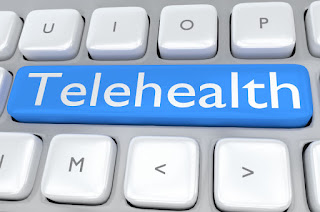Medical interpreters are an integral part of the healthcare delivery system. They form the link between doctors, nurses and other healthcare providers and patients with limited English proficiency.
With the increasing adoption of telecommunications and digital communication technologies including phone and video:
telehealth and
telemedicine, in the healthcare industry and the growing number of patients requiring interpretation, the demand for certified medical interpreters is on the rise.
But, how do you ensure you hire experienced and qualified medical interpreters? Here you will learn about 12 proven tips to help you when hiring medical interpreters for telehealth and telemedicine.
1. Experienced Certified or Qualified Interpreters
When hiring a
medical interpreter for telehealth and telemedicine, you want someone with over 3 years of experience in the professional medical interpreting settings.
In addition to the work experience, you’d expect the individual to have a healthcare-related certification or qualifications.
2. The Most Number of Languages Supported
A 2018
Migration Policy Institute report found that 22 percent of the U.S. population does not speak English at home. For healthcare providers, this presents a language and communication barrier which can be bridged by medical interpreters.
To ensure adequate care delivery for telehealth and telemedicine, hospitals and healthcare workers must have access to a wide range of medical interpreters who are proficient both in English and their mother tongue.
As a result, especially when outsourcing to a medical interpretation agency, you must consider agencies that support the most number of languages.
3. American Sign Language Supported
To ensure inclusive and healthcare accessibility for individuals living with hearing issues, it is essential to hire certified American Sign Language (ASL) interpreters with medical interpretation experience.
The ASL interpreters for telehealth and telemedicine must in addition to their certification, be proficient in medical terms and must have demonstrable experience working in and within healthcare providers.
4. Minimum 3-Way Participants at Remote Locations
People who would like a remote access to the healthcare services can do it through efficient telehealth and telemedicine. In situations where the patient is with limited English proficiency or living with a hearing loss, a medical interpreter bridges the gap between a healthcare provider and a patient.
Before hiring a medical interpreter service, you want to be sure that, at the minimum, 3-way participation from remote locations is possible with the doctor, the patient and the interpreter so to communicate conveniently.
5. Interpreters Available 24/7
Patients expect to have someone attend to them whenever they call no matter the time of day. As an essential member of the healthcare delivery system for telehealth and telemedicine, medical interpreters are expected to be available 24/7.
To avoid service delay or failure on your part, you want to be sure your team can have access to an interpreter any time they need one.
6. HIPAA Compliant
Healthcare providers are expected by Law to be
HIPAA compliant. The Health Insurance Portability and Accountability Act (HIPAA) is a regulation enacted to protect patient information.
Since medical interpreters are usually privileged with a patient’s protected health information, it is essential for a telehealth and telemedicine provider to ask and verify that they are HIPAA compliant before hiring them.
7. Quick Connections and Minimum Wait Time
This tip follows the point above on the availability of interpreters. As a healthcare provider, you want a seamless experience for patients, which includes connecting to interpreters instantly.
You want to be sure that interpreters can connect instantly and or reasonable wait time is experienced during a remote telemedicine session for telehealth and telemedicine.
8. No Equipment Necessary and Simple Set-Up
Does the medical interpretation need special equipment? Or require complicated set up before they can effectively communicate with both patients and doctors?
While there are several technologies and software on the market today for teleconferencing and video calls, you want a medical interpreter that requires little to no setup and only needs a computer, iPad or mobile phone.
9. State of the Art Technology
Remember, what you don’t measure, you can’t improve. Be sure to ask how the medical interpreter tracks and measures their performance.
Do they have analytical tools to track records and service-level data? Does their system automatically generate a real time call report? Also, don’t forget to ask how they handle paperwork and billing.
Your focus should be to hire an agency with an integrated state of the art system that will make working with them smooth and seamless for your telehealth and telemedicine.
10. Mobile APP Access
Aside from interpreting access online, you want to be sure you can use a mobile APP to quickly tab into interpreter connections.
The thing is, the smartphone is now an intricate part of our daily lives. A mobile APP makes it convenient and more accessible for people to receive the healthcare service they need without having to be on a desktop or carry their laptop around.
11. Secure Website and Email Host
Security of data is a significant aspect of healthcare delivery. It makes perfect sense to ensure an interpretation provider’s website and email host are secure and all other information and data security are kept at the highest level for your telehealth and telemedicine business.
12. The Best Prices and No Monthly Fees
Finally, while you want to hire experienced, professional and competent medical interpreters, prices must be affordable. Check out Affordable Prices at Languagers
Website.





No comments:
Post a Comment